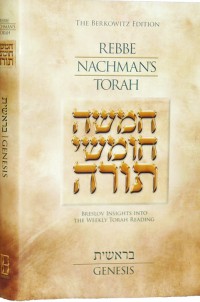19:14 This is the Torah, a man who would die in a tent.
We Must Strive to Come to the Core of the Torah
There is a “palace of Torah” that a person can enter and then walk through from room to room—that is to say, from idea to idea, whether those of others or his own.
Yet he may never get to the core of the Torah itself.
By way of analogy, one can write the word “man,” draw a picture of a man or sculpt a figure of a man. But none of these is an actual human being.
So too the Torah is manifested in various degrees. But a person must strive to attain the actual Torah. This is why the Torah states, “This is the Torah, a man.” We must attain the Torah that is as real as an actual man (LM I, 245).
To Be Fully Realized, a Person Must Fulfill All of the Mitzvot
Just as mankind consists of various types—e.g., wealthy and poor—so too the Torah has all sorts of applications, lenient and strict (LM I, 13:5). Only when a person fulfills all of the mitzvot of the Torah is he called a complete “man.”
A Person Must Give Up His Material Lusts in Order to Attain Torah
Our Sages teach that “the Torah remains only with a person who ‘kills himself’ for its sake”—i.e., who sacrifices on its behalf. As the verse states, “This is the Torah, a man who would die in a tent” (Berakhot 43b). The Hebrew for himself, atzmo, indicates a person’s material self and desires.
A person who “kills” his material lusts in order to attain Torah will attain the Countenance of God’s Face (LM I, 101).
20:8 Take the staff.
Every Individual Has His Own Staff of Torah
A person’s “staff,” or authority, is formed by the mitzvot that he performs. He then raises his “staff” to subdue the evil within others (LM I, 20:4).
20:8-11 “Speak to the rock.” … He struck the rock.
We Must Pray in Order to Open Our Hearts to Torah
For a person to open up the Supernal Heart, “the rock of my heart” (Psalms 73:26), he must engage in prayer and supplication.
Because instead Moshe forced the issue, he could not enter the Holy Land (LM I, 20:5).
21:14 It is stated in the Book of Hashem’s battles: as an outermost boundary….
The Battles of Torah Learning Are Actually Profound Peace
The Hebrew term for “outermost boundary” is vaHeiV b’SuFah, a phrase that our Sages rework to read oHaVim baSoF—“friends in the end.” Even though Torah scholars battle each other over God’s words, in the end they are friends (Kiddushin 30b).
This is because their battle is for the sake of God and eventually brings them to attain Godly consciousness.
Although a battle for the sake of Heaven may appear hostile, it is actually an expression of profound peace (LM I, 56:8).

